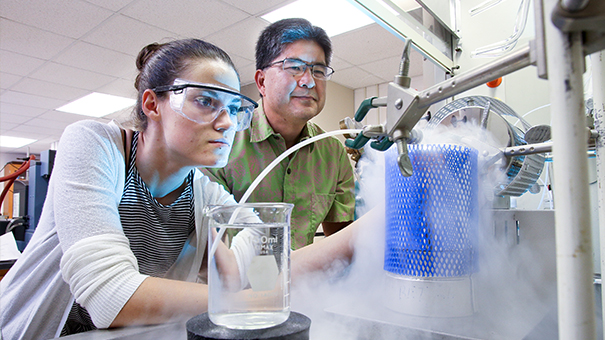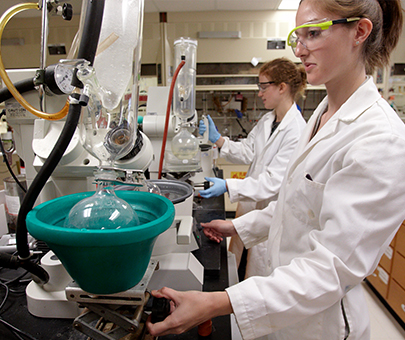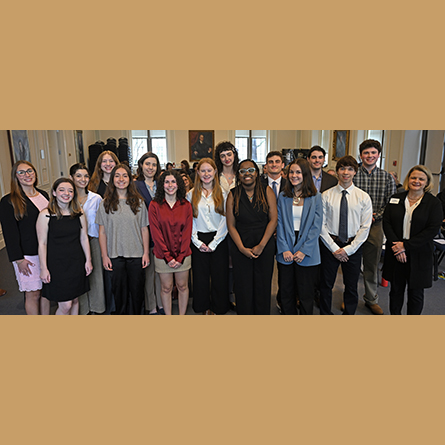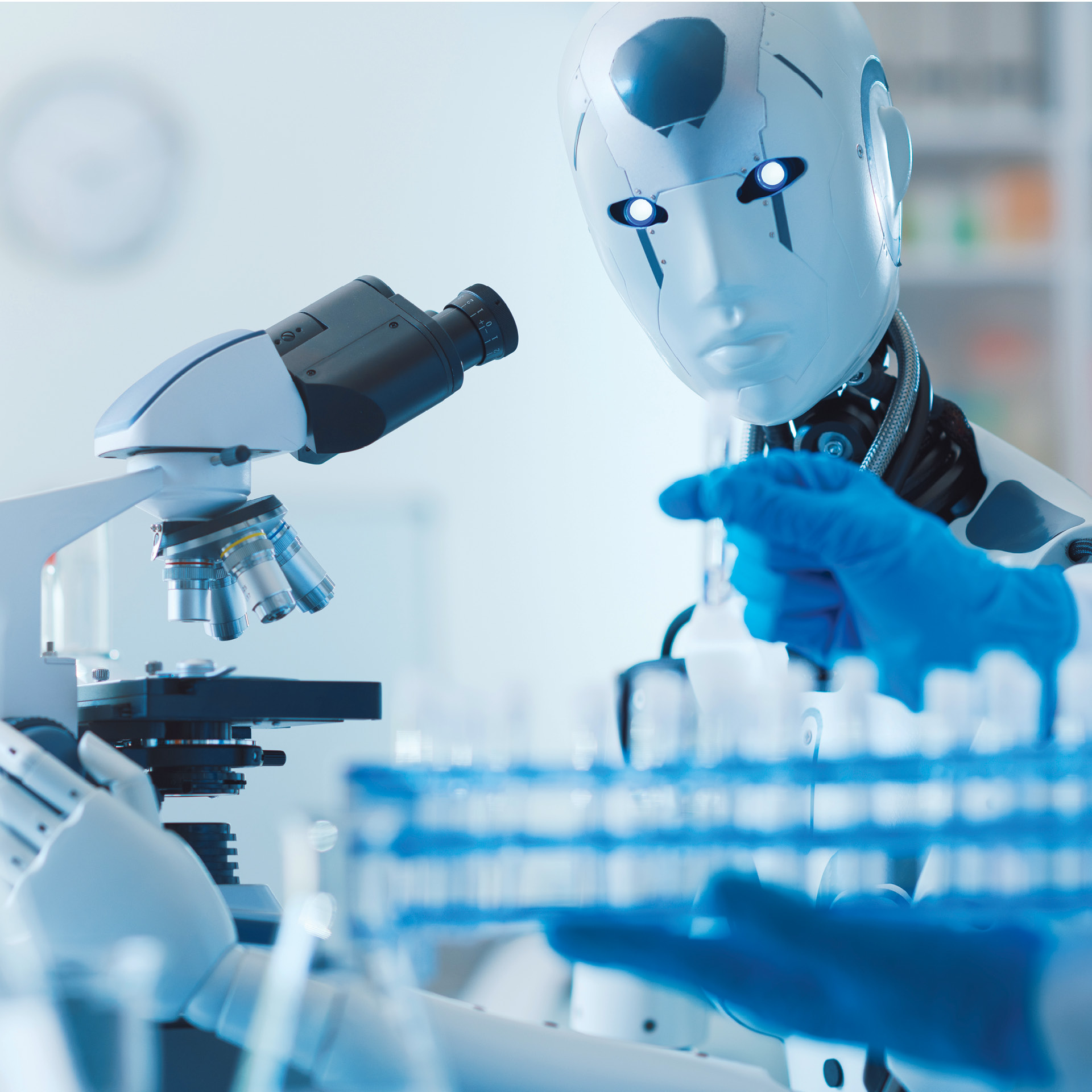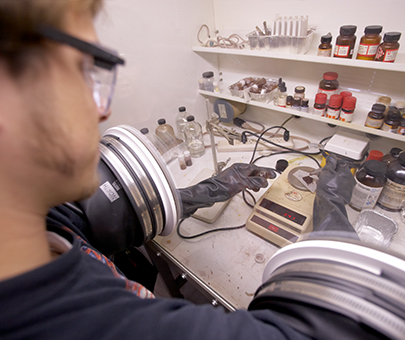
The Department of Chemistry supports students in their roles as learners and scientific investigators. Professors mentor students by teaching them to design and execute their own experiments, and they bring students into the fold of academic science by engaging them as researchers. Lectures and lab work give students a strong foundation that they build on incrementally as they advance through the program. Undergraduates learn directly from professors not only in the classroom but also in the lab, where they work with professors side by side, often serving as co-authors on papers published in leading scientific journals.
Several of our professors do research under the auspices of public and private-sector organizations including the U.S. military, other government agencies, and industry.
The Department of Chemistry houses superior facilities and gives undergraduates unusual access to cutting-edge scientific technology, including an Agilent 500 MHz nuclear magnetic resonance spectrometer. Other advanced technologies in our laboratories include a Thermo Scientific LC/MS system, an Agilent GC/MS instrument, a Rigaku X-ray diffractometer and Biotage Isolera automated chromatography systems.
The department offers three majors:
- Chemistry
- Biochemistry
- An interdisciplinary concentration in biochemistry, cellular and molecular biology.
Majors in chemistry and biochemistry earn professional certification from the American Chemical Society.
The major in biochemistry, cellular and molecular biology fulfills most of the medical school admission requirements and is a popular choice for premed students.
Along with other departments in the natural sciences, the Department of Chemistry offers students an intensive eight-to-10-week summer research program that includes housing and a summer stipend. Often students continue their work into the school year for academic credit.
About 20 percent of our chemistry majors go on to medical school. More than 50 percent go on to graduate work at top universities, including Yale University, the University of Pennsylvania and Duke University. Graduates work in a wide range of settings including the pharmaceutical companies Pfizer, Bristol-Myers Squibb, GlaxoSmithKline and the National Institutes of Health.
